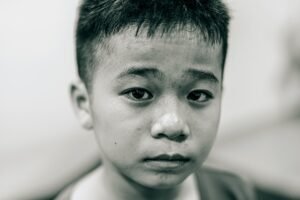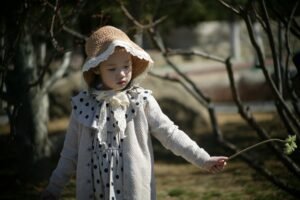In today’s increasingly interconnected world, the significance of academic skills cannot be overstated. These skills form the foundation of a child’s education, equipping them with the necessary tools to navigate complex subjects and excel in their studies. However, academic prowess alone is not sufficient for success in a globalised society.
Cultural awareness has emerged as an equally vital component of a well-rounded education. Understanding and appreciating diverse cultures fosters empathy, enhances communication, and prepares students to engage with a variety of perspectives. The Chinese Winter Camp at the LC Chinese School in Oslo embodies this dual focus, providing a unique environment where academic skills and cultural awareness are seamlessly integrated.
The camp serves as a platform for children to not only hone their academic abilities but also immerse themselves in the rich tapestry of Chinese culture. By participating in this programme, students gain insights into the traditions, values, and practices that shape Chinese society. This exposure is crucial in cultivating a sense of global citizenship, as it encourages young learners to appreciate differences and similarities among cultures.
In an era where cultural misunderstandings can lead to conflict, fostering cultural awareness through educational initiatives like the Chinese Winter Camp is more important than ever. Spaces are filling up fast! Register your child for Chinese Winter Camp at the LC Chinese School in Oslo today.
Table of Contents
ToggleSummary
- Academic skills and cultural awareness are crucial for a well-rounded education and personal development.
- Combining academic skills and cultural awareness can lead to a deeper understanding of global issues and perspectives.
- The fun camp is structured to provide a balance of academic workshops, cultural awareness activities, and field trips.
- Academic workshops and activities are designed to enhance critical thinking, problem-solving, and communication skills.
- Cultural awareness workshops and activities aim to promote empathy, respect, and appreciation for diversity.
The Benefits of Combining Academic Skills and Cultural Awareness
The intersection of academic skills and cultural awareness offers numerous benefits that extend beyond the classroom. When students engage with diverse cultures while developing their academic abilities, they become more adaptable and open-minded individuals. This combination enhances critical thinking skills, as learners are encouraged to analyse information from multiple viewpoints.
Furthermore, students who possess both strong academic skills and cultural awareness are better equipped to collaborate effectively in diverse teams, a crucial skill in today’s workforce. Moreover, the integration of cultural elements into academic learning can make education more engaging and relevant for students. The Chinese Winter Camp employs innovative teaching methods that incorporate cultural themes into various subjects, making learning more dynamic and enjoyable.
For instance, students might explore mathematical concepts through traditional Chinese games or delve into history by studying significant events in Chinese culture. This holistic approach not only reinforces academic content but also ignites a passion for learning that can last a lifetime.
The Structure of the Fun Camp

The structure of the Chinese Winter Camp at the LC Chinese School is meticulously designed to balance academic learning with cultural immersion. Each day is thoughtfully planned to include a mix of workshops, activities, and field trips that cater to various interests and learning styles. The camp typically runs for two weeks during the winter holidays, providing ample time for participants to engage deeply with both academic subjects and cultural experiences.
Mornings are often dedicated to academic workshops where students focus on subjects such as language, mathematics, and science. These sessions are led by experienced educators who employ interactive teaching methods to ensure that learning is both effective and enjoyable. Afternoons are reserved for cultural activities that allow campers to explore Chinese traditions through art, music, and cuisine.
This balanced structure ensures that students receive a comprehensive educational experience that nurtures both their intellectual and cultural development.
Academic Workshops and Activities
The academic workshops at the Chinese Winter Camp are designed to challenge students while also fostering a love for learning. Participants engage in language classes that focus on Mandarin Chinese, where they learn essential vocabulary, grammar, and pronunciation through interactive exercises and games. These language skills are not only valuable for communication but also serve as a gateway to understanding Chinese culture more profoundly.
In addition to language instruction, the camp offers workshops in mathematics and science that incorporate elements of Chinese culture. For example, students might explore mathematical concepts through traditional Chinese puzzles or investigate scientific principles by studying ancient Chinese inventions. This innovative approach not only reinforces academic content but also highlights the contributions of Chinese culture to global knowledge.
By linking academic subjects with cultural themes, campers develop a deeper appreciation for both their studies and the world around them.
Cultural Awareness Workshops and Activities
Cultural awareness workshops at the Chinese Winter Camp provide participants with an immersive experience that goes beyond textbooks and lectures. These sessions are designed to introduce campers to various aspects of Chinese culture, including its history, customs, and artistic expressions. Activities may include calligraphy lessons, where students learn the art of writing Chinese characters, or traditional dance workshops that allow them to experience the rhythm and movement of Chinese folk dances.
Food plays a significant role in cultural understanding, and campers often have the opportunity to participate in cooking classes where they prepare traditional Chinese dishes. This hands-on experience not only teaches culinary skills but also fosters an appreciation for the cultural significance of food in Chinese society. By engaging in these activities, students gain a multifaceted understanding of Chinese culture that enriches their overall educational experience.
The Role of Field Trips in Enhancing Academic Skills and Cultural Awareness

Field trips are an integral part of the Chinese Winter Camp experience, providing campers with opportunities to apply their academic knowledge in real-world contexts while deepening their cultural understanding. Visits to local museums or cultural centres allow students to explore artefacts and exhibitions related to Chinese history and art. These excursions serve as a bridge between classroom learning and practical application, reinforcing concepts learned during workshops.
Additionally, field trips often include visits to local Chinese communities or businesses, where campers can interact with native speakers and experience everyday life in a culturally rich environment. Such interactions not only enhance language skills but also foster meaningful connections between campers and the broader community. By stepping outside the classroom and engaging with real-world contexts, students develop a more nuanced understanding of both their academic subjects and the cultural landscape surrounding them.
The Impact of Team Building and Leadership Activities
Team building and leadership activities are essential components of the Chinese Winter Camp, promoting collaboration and interpersonal skills among participants. Through group challenges and cooperative games, campers learn the importance of teamwork while developing their leadership abilities. These activities encourage communication, problem-solving, and conflict resolution—skills that are invaluable in both academic settings and future careers.
Moreover, team-building exercises often incorporate elements of Chinese culture, such as traditional games or group performances that require cooperation and creativity. By working together towards common goals, campers not only strengthen their bonds with one another but also gain insights into the value of collective effort—a principle deeply rooted in many cultures around the world. The emphasis on teamwork fosters a sense of community within the camp, creating lasting friendships that extend beyond the winter session.
The Importance of Diversity and Inclusivity in the Camp
Diversity and inclusivity are fundamental principles guiding the Chinese Winter Camp at the LC Chinese School. The camp welcomes participants from various backgrounds, ensuring that children from different cultures can come together to learn from one another. This diversity enriches the camp experience by exposing students to a wide range of perspectives and ideas.
Inclusivity is also reflected in the camp’s programming, which is designed to accommodate different learning styles and abilities. Educators strive to create an environment where every child feels valued and supported in their learning journey. By fostering an inclusive atmosphere, the camp not only promotes cultural awareness but also instils a sense of belonging among participants—an essential aspect of personal development.
Testimonials and Success Stories from Previous Campers
The impact of the Chinese Winter Camp is best illustrated through the testimonials and success stories shared by previous campers. Many participants have reported significant improvements in their language skills, confidence levels, and cultural understanding following their time at the camp. Parents often express gratitude for the positive changes they observe in their children—whether it be increased enthusiasm for learning or a newfound appreciation for diversity.
One camper recounted how participating in the camp inspired her to pursue further studies in Mandarin after discovering her passion for the language during workshops. Another shared how field trips allowed him to connect with his heritage in ways he had never experienced before. These stories highlight not only individual growth but also the lasting impact of combining academic skills with cultural awareness—a testament to the camp’s mission.
Tips for Parents and Guardians on Supporting Academic and Cultural Development
Parents and guardians play a crucial role in supporting their children’s academic and cultural development outside of camp settings. Encouraging curiosity about different cultures can begin at home through discussions about global events or by exploring diverse literature together. Additionally, parents can foster language skills by incorporating bilingual resources into daily routines or enrolling children in language classes.
Creating opportunities for children to engage with diverse communities is equally important. Attending cultural festivals or visiting museums can provide enriching experiences that complement what they learn at camp. By actively participating in their children’s educational journeys, parents can help cultivate a lifelong appreciation for learning and cultural understanding.
How to Enrol in the Fun Camp and Important Dates to Remember
Enrolling in the Chinese Winter Camp at the LC Chinese School is a straightforward process designed to ensure that all interested families can participate. Registration typically opens several months before the camp begins, allowing ample time for parents to secure spots for their children. Interested families can visit the school’s website for detailed information on registration procedures, fees, and important dates.
It is advisable for parents to mark key dates on their calendars—such as registration deadlines and orientation sessions—to ensure they do not miss out on this enriching opportunity for their children. The camp’s popularity often leads to high demand; therefore, early registration is recommended to guarantee participation. By taking these steps, families can ensure that their children benefit from this unique blend of academic skills development and cultural immersion at the Chinese Winter Camp in Oslo.







